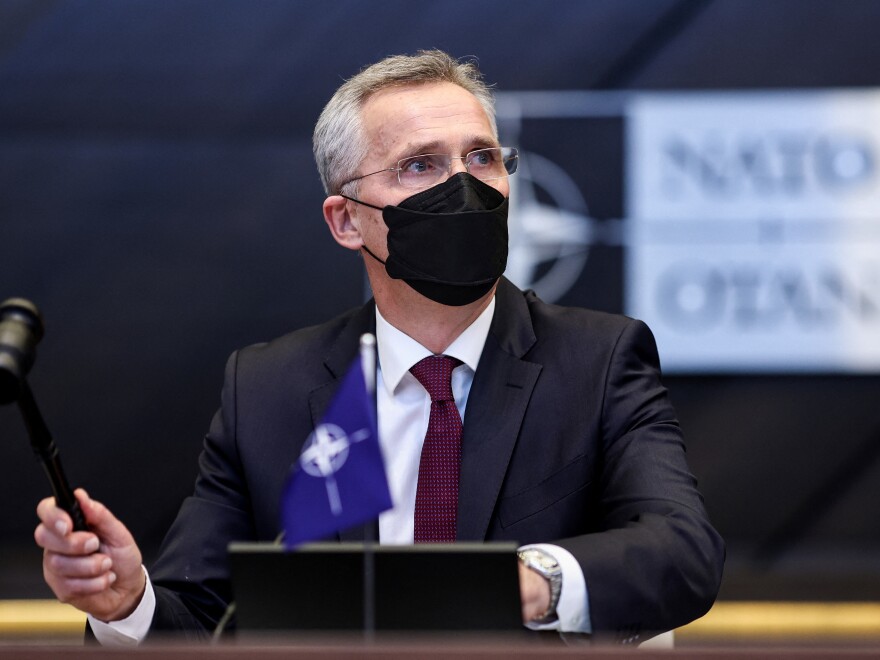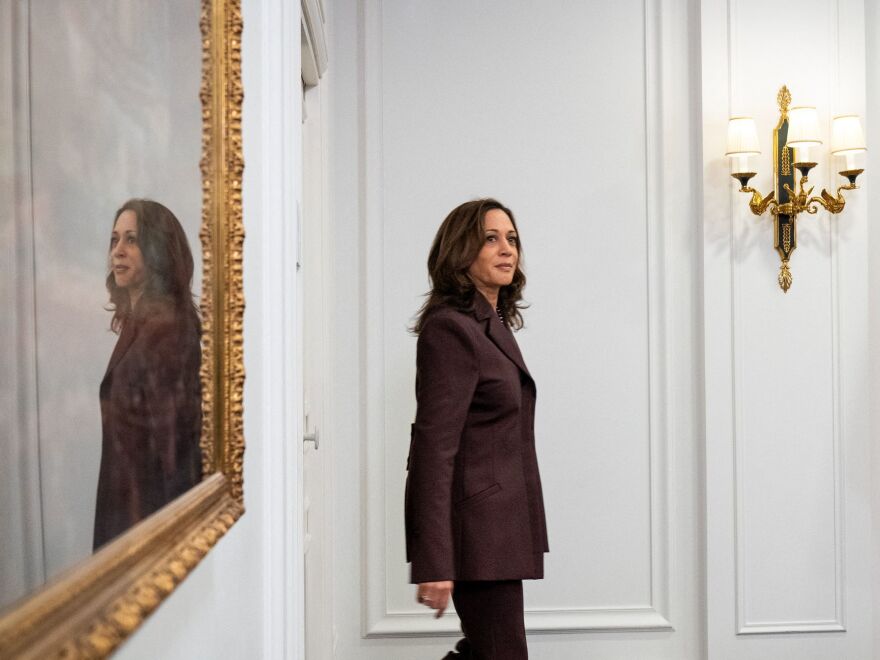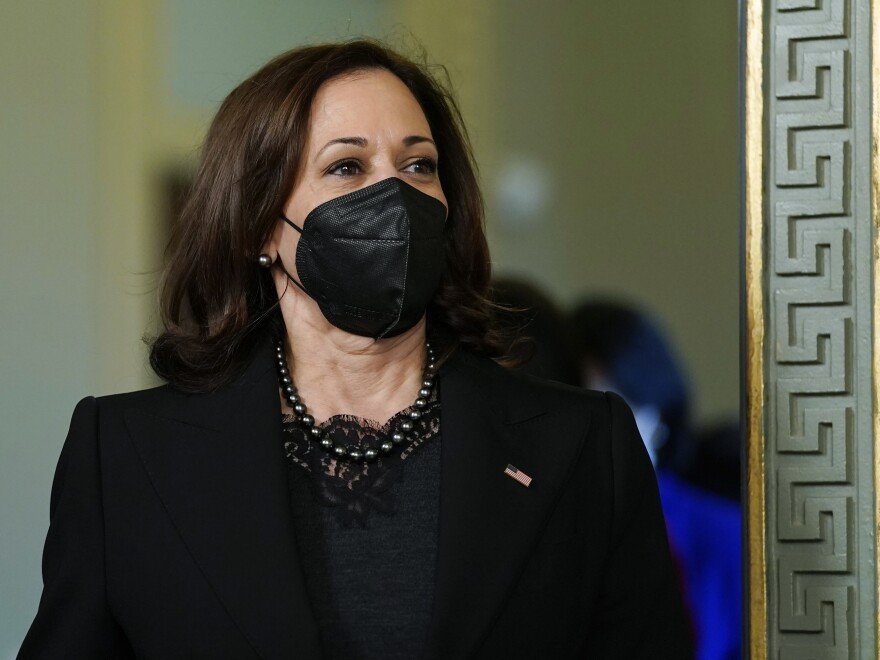Vice President Harris is traveling to Germany on Thursday to hold a whirlwind series of talks with European leaders to bolster unity as concern grows about Russian troops at Ukraine's border.
Harris plans to meet with about 13 heads of state over the course of the weekend in Munich, and also will give an address to an annual conference of the world's top national security officials.
"The vice president's schedule is going to be very intense, and it will include a series of high-stakes, high-level diplomatic talks," a senior administration official told reporters on Wednesday evening.
"The key objective for her trip now is to focus on this fast-changing, evolving situation, this tremendous challenge that we are facing now, to make sure that we are fully in line with our allies," the official said.
The trip comes as U.S. officials say Russia had falsely claimed to be withdrawing troops — instead adding as many as 7,000 troops along its border with Ukraine, with some arriving Wednesday.
"The Russians have also said in recent days that they are prepared to engage in diplomacy as we and our allies have repeatedly offered," a second official told reporters. "But every indication we have now is they mean only to publicly offer to talk about their claims about de-escalation while privately mobilizing for war."

Harris will meet with Ukraine's Zelenskyy in Munich
On Friday, Harris will meet with NATO Secretary General Jens Stoltenberg and later huddle with the leaders of the Baltic states Estonia, Latvia and Lithuania – three members of the NATO alliance particularly nervous about Moscow's incursions into Ukraine because of their own geographic proximity to Russia.
On Saturday, she will meet with Ukrainian President Volodymyr Zelenskyy — as well as with German Chancellor Olaf Scholz.
She will also deliver a speech to the Munich Security Conference about the latest state of play at the Ukrainian border and underscore that transatlantic allies are united in their response to Russian aggression.
"Obviously, we're focused mostly on the very serious threat to the country of Ukraine, but it goes beyond that," a third official told reporters. "Russia poses a threat in what it's doing here to the European and international order."

Harris plans to highlight NATO coordination
It's critical that NATO allies "speak with one voice" to counter the threat posed by Russia, said Ivo Daalder, who served as the U.S ambassador to NATO in the Obama administration.
"We're potentially at the cusp of the most significant military operation in Europe since World War II," Daalder told NPR.
He said it's crucial that Harris seize this moment to show how the U.S. can bring together the diverse interests represented within the alliance.
Administration officials told reporters that Harris will highlight the coordination among NATO members on diplomacy and deterrence — including bolstering forces on NATO's eastern flank, and working on severe economic sanctions for Russia if it invades.

This is a high-stakes opportunity for Harris to show leadership
Harris, who spent most of the earlier part of her political career focused on domestic issues, worked to carve out a role in the Biden administration's foreign policy during her first year as vice president.
That includes a trip to France in November, where she met with top leaders in Europe. She has focused on migration issues from central America, and visited with leaders in Honduras, Guatemala and Mexico, and also represented Biden during a trip to Singapore and Vietnam.
She has also been in the room for some of Biden's biggest national security decisions, including the evacuation of Kabul, and the U.S. raid that killed an ISIS leader.
This is an opportunity for the vice president to step onto the stage in Munich and to say, 'I am the face of the next America.'
Halie Soifer, who was a national security adviser to Harris when she was in the U.S. Senate, said the Munich conference is a real opportunity for Harris to showcase her leadership.
"This is a looming crisis," Soifer said. "She'll play an essential role in assuring our allies that we are standing with them at this critical time."

To some Europeans, Harris represents the next generation of Americans
There's been some uncertainty among allies in recent years about how much the United States still cares about European security.
Some see this crisis as much more than about confronting Russia. It is also about establishing whether Europe matters to the next generation of Americans.
Constanze Stelzenmüller, who writes about transatlantic issues at the Brookings Institution, says there is little doubt where Biden and his generation stand.
But Harris can help define what the U.S. relationship with Europe will look like for the future, Stelzenmüller said.
"This is an opportunity for the vice president to step onto the stage in Munich and to say, 'I am the face of the next America,'" Stelzenmüller said. "'And this America cares about its place in the world and cares about peace in the world and rules, and democracy — and we will stand by our allies.'"
Copyright 2022 NPR. To see more, visit https://www.npr.org. 9(MDAxNzg0MDExMDEyMTYyMjc1MDE3NGVmMw004))








